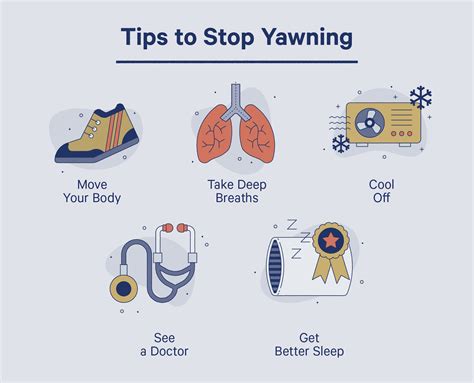How to Stop Yawning: Conquering the Uncontrollable Gape
Yawning. That involuntary, wide-mouthed gape that seems to strike at the most inconvenient times. While often associated with tiredness, yawning's triggers are surprisingly diverse. Understanding these triggers is the first step in learning how to stop yawning, or at least minimize its impact. This guide provides practical strategies to help you conquer those uncontrollable yawns.
Understanding the Yawning Mystery: Why Do We Yawn?
Before we delve into solutions, let's address the root causes. While the exact reasons remain a subject of ongoing scientific research, several theories explain why we yawn:
-
Thermoregulation: One prominent theory suggests yawning helps regulate brain temperature. A deep yawn increases blood flow to the brain, potentially cooling it down and improving cognitive function. This could explain why we yawn more frequently when we're tired or in warmer environments.
-
Increased Alertness: Yawning might act as a natural stimulant. The deep breaths and stretching involved can increase oxygen intake and promote alertness, combating drowsiness.
-
Contagious Yawning: The most well-known aspect of yawning is its contagious nature. Seeing someone else yawn often triggers a yawn in response, a phenomenon that scientists believe reflects empathy and social bonding.
-
Boredom and Monotony: Yawning can also be a sign of boredom or a lack of mental stimulation. When your brain is under-stimulated, a yawn might serve as a way to refocus attention.
Practical Strategies to Stop Yawning (or at Least Minimize It)
Now that we understand the why, let's tackle the how. Here are some practical strategies to help manage those pesky yawns:
1. Address Underlying Causes:
-
Get Enough Sleep: This is the most crucial step. Chronic sleep deprivation significantly increases the likelihood of yawning. Aim for 7-9 hours of quality sleep each night.
-
Stay Hydrated: Dehydration can lead to fatigue and increased yawning. Keep a water bottle handy and sip regularly throughout the day.
-
Improve Your Diet: A balanced diet rich in fruits, vegetables, and whole grains provides the necessary nutrients for optimal brain function and energy levels. Avoid excessive caffeine or sugar, as these can lead to energy crashes and increased yawning later.
2. Quick Fixes for Immediate Relief:
-
Deep Breathing Exercises: Take slow, deep breaths, focusing on inhaling deeply and exhaling slowly. This can help increase oxygen levels and improve alertness.
-
Cold Water Splash: Splashing cold water on your face can provide a quick jolt to your system, helping to combat drowsiness and reduce yawning.
-
Physical Activity: A short burst of physical activity, like a brisk walk or some stretches, can boost energy levels and reduce the urge to yawn.
-
Distract Yourself: Engaging in a mentally stimulating activity, like a challenging puzzle or a conversation, can shift your focus and reduce the frequency of yawns.
3. Managing Contagious Yawning:
While you can't entirely avoid contagious yawning, you can minimize its impact by consciously trying to avoid looking at people who are yawning. Focus your attention elsewhere, and try to resist the urge to yawn yourself.
Beyond the Basics: When to Seek Professional Help
While occasional yawning is normal, excessive or persistent yawning could indicate an underlying medical condition. Consult a doctor if you experience:
- Excessive Yawning: Unusually frequent and intense yawning that persists despite adequate sleep and hydration.
- Yawning Accompanied by Other Symptoms: If your yawning is accompanied by other symptoms like fatigue, dizziness, or difficulty breathing, seek medical attention.
By understanding the causes of yawning and implementing these strategies, you can effectively manage those uncontrollable gaps and maintain alertness throughout the day. Remember, prioritizing sleep, hydration, and a healthy lifestyle are key to long-term yawn reduction.
